AIR Discussions (June 2nd Week)
AIR SPOTLIGHT
WTO's 12th Ministerial Conference (MC12)

Context
- The WTO's 12th Ministerial Conference (MC12) will take place on 12-15 June 2022 at WTO headquarters in Geneva.
- Ministers from across the world will have the opportunity to review the functioning of the multilateral trading system, make general statements and take action on the future work of the WTO.
- The Conference will be co-hosted by Kazakhstan and chaired by Mr Timur Suleimenov, Deputy Chief of Staff of Kazakhstan's President.
Background
- Kazakhstan was originally scheduled to host MC12 in June 2020 but the conference was postponed due to the COVID-19 pandemic.
- In April 2021, members agreed that MC12 would take place in Geneva from 30 November to 3 December. However, an outbreak of a new highly transmissible strain of the COVID-19 virus and resulting travel restrictions led to a General Council decision on 26 November 2021 to postpone MC12 indefinitely.
- On 25 April, WTO Director-General Ngozi Okonjo-Iweala, MC12 Chair Mr Timur Suleimenov and General Council Chair Ambassador Didier Chambovey informed members that MC12 would take place on 12-15 June 2022 at WTO headquarters in Geneva.
About WTO
- The World Trade Organization (WTO) is the only global international organization dealing with the rules of trade between nations.
- At its heart is the WTO agreements, negotiated and signed by the bulk of the world’s trading nations and ratified in their parliaments.
- The goal is to ensure that trade flows as smoothly, predictably and freely as possible.
About Ministerial Conferences
- The topmost decision-making body of the WTO is the Ministerial Conference, which usually meets every two years.
- It brings together all members of the WTO, all of which are countries or customs unions. The Ministerial Conference can take decisions on all matters under any of the multilateral trade agreements.
Stake for India
- The Union Minister of Commerce and Industry Piyush Goyal is leading the Indian delegation at the 12th WTO Ministerial Conference in Geneva Switzerland.
- Some of the important issues highlighted by India:
- Food security
- Eradication of hunger
- Sustainable fishing and farming
Expected global response on issues raised by India
- The 12th MC is happening now after a gap of almost five years. Several issues have culminated in these years:
- WTO response to pandemic has raised eyebrows among developing countries including India.
- Fishery subsidy negotiations, the subsidy leads to excess capacity, which may contribute to overfishing, as well as those that support illegal, unreported, and unregulated (IUU) fishing.
- Agricultural issues including, public stockholding for food security. While food security is a legitimate policy objective, some stockholding programmes are considered to distort trade when they involve purchases from farmers at prices fixed by the governments, known as “supported” or “administered” prices.
- WTO reforms, overall, reform proposals focus on three aspects of the WTO's functioning: rulemaking; transparency and monitoring; and dispute settlement.
- Moratorium on custom duties on electronic transmission, India will strongly oppose the continuation of the moratorium as it results in a loss of revenues for developing countries.
- As India aspires to lead developing countries, it has a vital stake in protecting the interest of all stakeholders. For this India has to take the lead on two or three specific issues.
Indian Minister spoke on several issues and highlighted the rising food prices that threaten the survival of millions of people it subjugates poor nations and people to imperfect markets. WTO rules should ensure a collective moral obligation that no person in the world goes to bed hungry in the recent event of Sri Lanka. As per studies, the world is producing enough food to feed everyone.
Concerns of developing countries
- Agriculture is one of the very important issues, the Director-General of WTO has brought three draft texts:
- Agriculture and trade
- Food security
- Exemption of the World Food Programme from exports restriction for humanitarian purposes
- India has reservations about some of the provisions in the draft decisions and has been engaging in the process of discussions and negotiations to be able to preserve the rights under the agreement on agriculture without undermining the existing ministerial mandates.
- An important issue under negotiation at the WTO relates to the protection of India's food grain procurement program at minimum support prices (MSP) because such programs involve purchases from farmers at administered prices.
- WTO’s current rules limit this subsidy, so this issue is being negotiated at the G 33 coalition of developing countries in which India is a key member and the African group has come together along with the African, Caribbean and Pacific (ACP) Group.
- These countries will submit a proposal on a permanent solution to the issue of public stock filing for food security purposes along with MSP.
- Developing countries also seek improvement over the ministerial decisions which is adopted at the 9th MC held at Bali in 2013, where developing countries had agreed to negotiate a permanent solution on the issue of public stockpiling for food security purposes and in the interim, it was agreed that until a permanent solution is reached that the members would exercise restraint commonly this is known as the peace clause.
- Another very important issue is that of additional disciplines on export restrictions of agricultural products. The proponents of export restrictions are seeking an outcome on two issues:
- One is the exemption of footsteps purchased for non-commercial humanitarian purposes by the word program from the application of exporter section.
- Second is the advanced notification of export restrictive measures including improving compliance with existing notification requirements.
- Given the sensitivities, shortages of food grains and price escalation, the implications of providing advanced notice will become burdensome for developing country members.
- India has significantly contributed to World Food Program (WFP) over the years and it does not impose any export restrictions for WFP procurement but at the same time is extended support to its neighbours.
- So blanket exemption for the WFP and domestic food security are concerns for India.
- One last issue in agriculture is related to market access. The special shape card mechanism for developing countries to protect the domestic agricultural producers against import surges in certain price falls through additional import duties on the lines of a similar safeguard presently available to many developed in a few developing countries so this is the total of the issues at stake for India
The WTO reform is something we've been discussing for a while and we've also seen that many of the global institutions here is a lot of discussion about the need for reform and then but we also see that the world seems to be very slow in changing and accepting the fact that reforms are needed.
Reform in WTO
- India has strongly pitched for two things in WTO:
- WTO reform is necessary for keeping development score with consensus-based decision-making.
- WTO should not negotiate rules on non-trade-related subject matters such as climate change and gender.
- India believes that the WTO reform discussion must focus on strengthening its fundamental principles (market access, reforms to export restrictions and transparency) and preserving this special and differentiated treatment (S&D) including consensus-based decision-making, non-discrimination, special and differential treatment disjuncture and its should neither result in preserving inherited equities nor should they worsen the imbalances.
- Amongst the reform proposals the most consequential is the USA-EU-Japan trilateral initiative. It was announced at the Ministerial-11 and India has led the initiative went through developing country reform proposal because the developing countries form paper was called strengthening the WTO to promote development inclusive entry.
- Bolivia Cuba South Africa Tunisia Zimbabwe and Oman they'd all become Co-sponsors.
- The proposal has been revised several times the latest one was submitted in February 2022.
- In November 2021, India took the lead to question the proposal from the European Union and Brazil. Both on the process and as well as on its objective because India did not favour an open-ended exercise on WTO reform without first actually agreeing on the elements of the reform package.
- Another major issue is the WTO’s response to the pandemic. This is one of the priority items for this ministerial and that also includes the TRIPS waiver proposal given the necessity of producing COVID vaccines.
- The last issue on intellectual property, where India is actually seeking recognition of difficulties faced by developing countries and least developed countries in utilizing the TRIPS flexibilities to address the COVID-19 pandemic and secondly a reaffirmation of the TRIPS waiver decision under the responses are declaration should then allow vaccines to be produced in a much more liberally in all countries.
The director-general of WTO has expressed very cautious optimism and she also pointed out that the world has become increasingly more complex she also listed the lingering COVID-19 pandemic the war in Ukraine and major food and energy crisis as pieces of poly crisis.
How effectively WTO can lead this Poly crisis?
- The director-general has come up with three very important drafts for negotiations. It’s not just trade-related issues that the world faces today we also have the Ukraine issue which is casting a shadow on the negotiations as a whole because developed countries particularly the United States in the EU want to keep Russia out of the negotiations process.
- Russia controls 7% of the world economy today and keeping Russia which is a major commodity producer or exporter is not going to work to have a broad-based consensus-based agreement.
- She referring to the issues of TRIPS waiver, the pandemic is not gone and rising food inflation as a Poly crisis.
Conclusion
The other areas like fisheries and agriculture etc are ongoing issues but today the world faces some new issues which will all affect how countries will negotiate these issues and how we move forward on them. The 12th ministerial conference will summarise how the world has changed and how the global developments also affect the negotiations and the workings of the WTO.
https://newsonair.gov.in/Spotlight.aspx#
https://t.me/+hJqMV1O0se03Njk9
NEWS IN BRIEF: PRELIMS SPECIAL
Agnipath Scheme
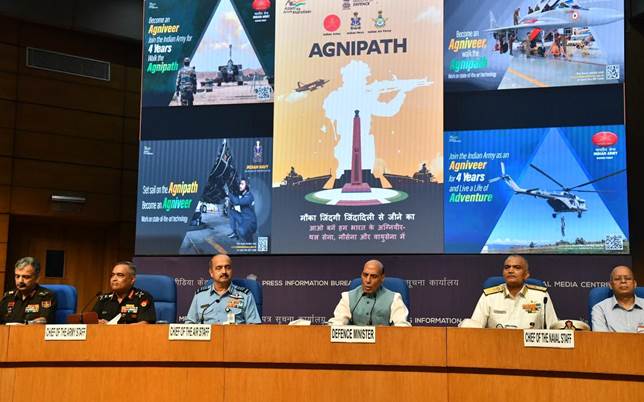
Context
- Briefing media with three Service Chiefs, Defence Minister Rajnath Singh announced the AGNIPATH scheme for recruitment of youth in the Armed Forced.
- The youth selected under this scheme will be known as Agniveers.
- The Agniveers will be getting an attractive monthly package with Risk and Hardship allowances as applicable in the three services.
- Agniveers will be also paid a one-time Seva Nidhi package upon completion of the engagement period of four years.
- The AGNIPATH Scheme cleared by Cabinet Committee on Security allows patriotic and motivated youth to serve in the Armed Forces for four years.
- Over forty-six thousand Agniveers to be recruited this year.
- This is a major defence policy reform introduced by the Government to usher in a new era in the Human Resource policy of the three services.
- The policy, which comes into immediate effect, will govern the enrolment for the three services.
- Agniveers will get a salary of 30,000 rupees to 40,000 rupees per month and allowance as applicable.
- The Seva Nidhi will be exempt from Income Tax.
- There shall be no entitlement to gratuity and pensionary benefits.
- Agniveers will be provided with a non-contributory Life Insurance Cover of 48 lakh rupees for the duration of their engagement period in the Indian Armed Forces.
- During this period of service to the nation, the Agniveers will be imparted with various military skills and experience, discipline, physical fitness, leadership qualities, courage and patriotism.
- Post this stint of four years, the Agniveers will be infused into the civil society where they can contribute immensely towards the nation-building process.
https://t.me/+hJqMV1O0se03Njk9
Start-Ups for Railways
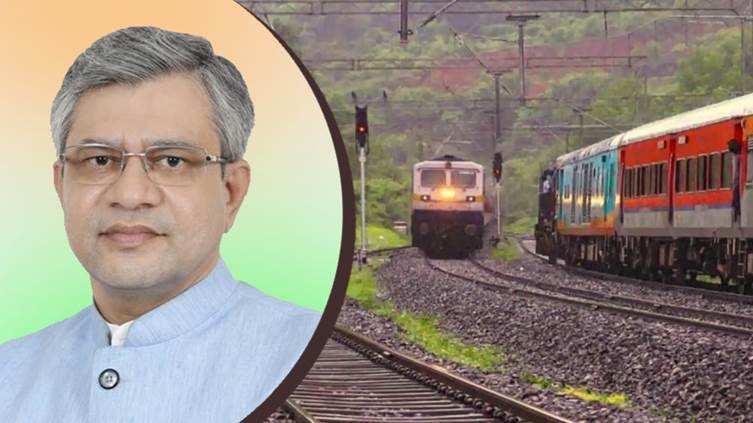
Context
- Railways Minister Ashwini Vaishnaw has launched “Start-Ups for Railways” in New Delhi.
- This Start-Ups policy aims to leverage innovative technologies developed by Indian Start-ups, MSMEs, Innovators and Entrepreneurs to improve the operational efficiency and safety of Indian Railways.
- The policy which is part Indian Railways Innovation Programme, will bring scale and efficiency in the field of operation, maintenance and infrastructure creation through the participation of a very large and untapped start-up ecosystem.
National Conference of Chief Secretaries
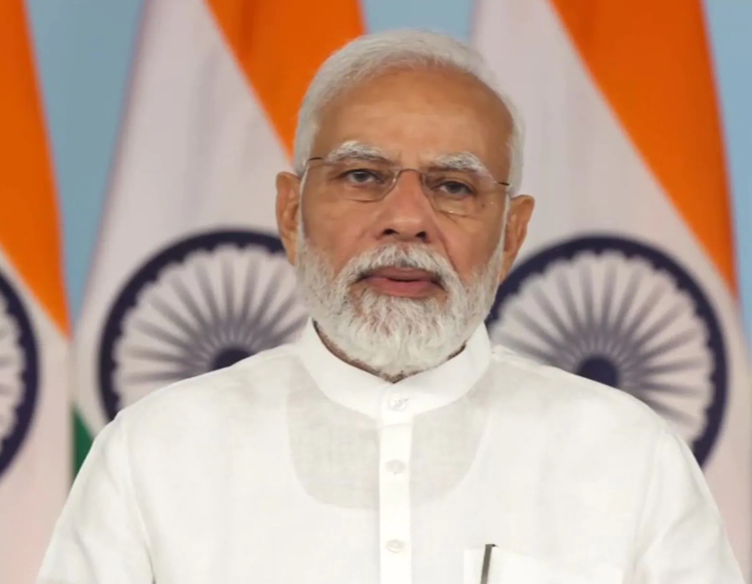
Context
- Prime Minister Narendra Modi will chair the First National Conference of Chief Secretaries at HPCA Stadium in Dharamshala, Himachal Pradesh on 16th and 17th June.
- It will be a significant step towards further strengthening the partnership between the Centre and the State Governments.
- More than 200 people will participate in the conference, representing the Central Government, all States and Union Territories and domain experts.
- Spread over three days, it will focus on the rapid and sustained economic growth in partnership with the States.
- Working as Team India, the Conference will lay the ground for collaborative action for higher growth with sustainability, creation of jobs, education, ease of living and aatmanirbharta in agriculture.
- The Conference will emphasise on evolution and implementation of a common development agenda and blueprint for cohesive action to achieve the aspirations of the people.
- The concept and agenda for this conference have been curated after more than one hundred rounds of deliberations spread over six months.
- Three themes have been identified for detailed deliberations in the Conference,
- Implementation of the National Education Policy,
- Urban governance and
- Crop diversification and achieving self-sufficiency in oilseeds, pulses and other agri-commodities.
- There would be a session on Aspirational Districts Programme which would deliberate upon the achievements made so far, with successful case studies including on data-based governance, presented by the young Collectors in specific districts.
- There would be a special session on Azadi ka Amrit Mahotsav- Roadmap to 2047 and four additional thematic sessions on:
- Reducing Compliance Burden and Decriminalization of Minor Offences for Ease of Doing Business,
- Centre-State Coordination for achieving saturation coverage of schemes and ensuring last-mile delivery,
- Transforming India’s infrastructure through PM Gati Shakti and
- Capacity building: Implementation of iGOT - Mission Karmayogi.
https://t.me/+hJqMV1O0se03Njk9
Type Certificate under Drone Rules
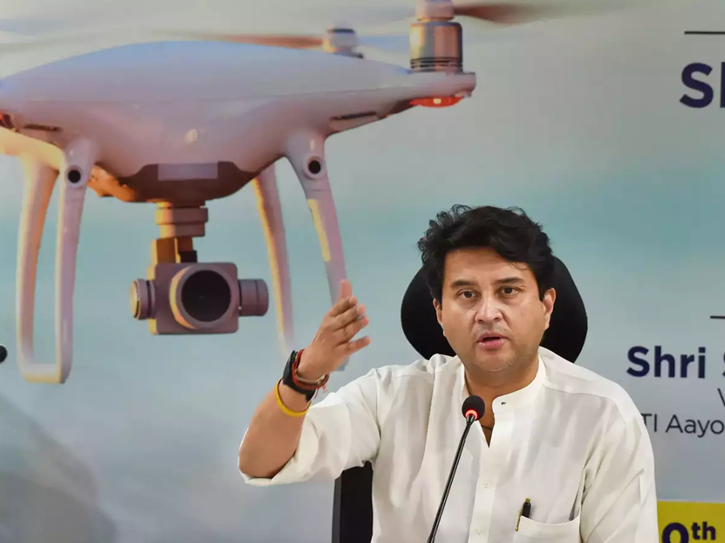
Context
- Union Civil Aviation Minister Jyotiraditya Scindia awarded the first Type Certificate under Drone Rules to IoTech World Avigation Private Limited in New Delhi. This company is one of India’s leading manufacturers of Kisan drones.
- India has set a target to become a drone hub by 2030 and issuing of Type Certificate in record 34 days is a step in that direction.
- The Drone Certification Scheme will create an ecosystem for the manufacturing of world-class drones in India.
- 14 drone prototypes arere currently undergoing certification tests.
- The number of Type Certified prototypes may exceed the figure of 100 over the next three years.
https://t.me/+hJqMV1O0se03Njk9
Pradhan Mantri Aadi Adarsh Gram Yojana
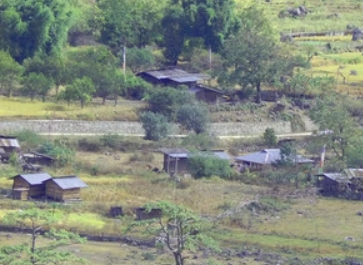
Context
- The government has launched Pradhan Mantri Aadi Adarsh Gram Yojana for faster development of tribal villages.
- The focus of the scheme is on converging different programs of 41 ministries in the tribal villages to ensure their all-around development.
- The govt aims to take the villages into saturation mode.
https://t.me/+hJqMV1O0se03Njk9



1.png)
